Rooted In Revenue
Revenue and sales are built on a solid operational foundation that allows marketing to thrive in an ever-changing environment with technology. Brought to you by speaker, branding strategist, producer Susan Finch, and Lany Sullivan, Fractional COO, and Strategic Consultant. This show is part of Funnel Media Group’s monthly line-up of podcasts.
Revenue and sales are built on a solid operational foundation that allows marketing to thrive in an ever-changing environment with technology. Brought to you by speaker, branding strategist, producer Susan Finch, and Lany Sullivan, Fractional COO, and Strategic Consultant. This show is part of Funnel Media Group’s monthly line-up of podcasts.
Episodes
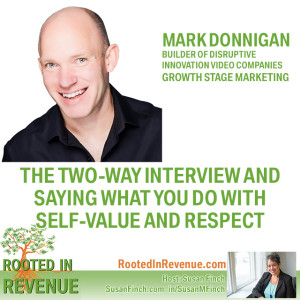
Wednesday Sep 15, 2021
The Two-Way Interview with Mark Donnigan
Wednesday Sep 15, 2021
Wednesday Sep 15, 2021
Mark Donnigan from Growth Stage Marketing says, "It's important that a professional team work together and all the executives should be rowing in the same direction and all these kind of truisms, which are all true but there are some very profound implications to how we market and how we sell, which gets wrapped up in go to market as a result of the fragmented buyer's journey that we are in today." He also reminds us, "think about how you talk about yourself, how you talk about what you do. And even as a full-time employee, in fact, I could argue that as a full-time employee, it matters as much or even more because it's so amazing when you hear one person who just describes themselves in kind of the HR job description. What do you do?" Listen to the first half of this interview to walk away walking a little bit taller, and able to go into interviews with more confidence.
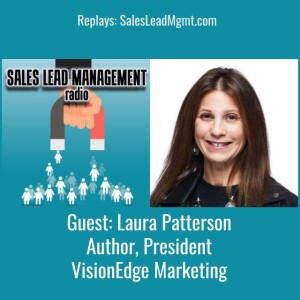
Thursday Sep 02, 2021
Training for and Playing to Our Strengths to Plow by the Competition
Thursday Sep 02, 2021
Thursday Sep 02, 2021
We're continuing our insightful conversation with Laura Patterson from VisionEdge Marketing. If you missed the first part, I encourage you to go back and listen - but don't worry, we'll catch you up quickly.
In this episode, we dive deeper into the four patterns Laura identified for supporting growth and improving performance in business. Here are some key points we'll explore:
The importance of considering "what if" scenarios in business planning
How data analysis can reveal hidden patterns and opportunities
The value of continuous training and practice, even in areas where you excel
Why surrounding yourself with ambitious, growth-minded individuals is crucial
Laura and I also discuss real-world examples of companies that have succeeded (and failed) by adapting to changing market conditions. We discuss the importance of objective data analysis and why partnering with external experts can provide fresh perspectives.
Whether you're a seasoned business leader or just starting your career, this conversation offers valuable insights on how to stay proactive, plan strategically, and continuously improve your skills. So let's jump back in with Laura Patterson as we explore these critical patterns for business success.
Part 1 is here.

Thursday Aug 26, 2021
Changing patterns vs habits, and flipping the script because we can
Thursday Aug 26, 2021
Thursday Aug 26, 2021
Welcome to Rooted in Revenue! I'm your host, Susan Finch, and today we're bringing you a blast from the past that's still incredibly relevant. Back in 2021, I had the pleasure of speaking with Laura Patterson from VisionEdge Marketing on my former show, SLMA Radio. Laura, a dear friend and frequent guest, recently reached out about revisiting this conversation - and I couldn't agree more that the insights are worth sharing again.
In this episode, we dive into some powerful ideas around business growth and performance improvement. Here are some key points we'll explore:
The importance of being proactive in shaping your business outcomes
Why planning to win is crucial, even if you encounter setbacks along the way
The value of analyzing patterns in your business and personal life
How taking ownership and initiative can lead to positive change
Laura and I also touch on our similar upbringings and the life lessons that have shaped our approaches to business. It's a candid, insightful conversation that I think you'll find both relatable and actionable.
So settle in as we revisit this gem from the archives. Laura Patterson's expertise in marketing and business strategy is always worth a listen, and I'm thrilled to share it with you today on Rooted in Revenue.
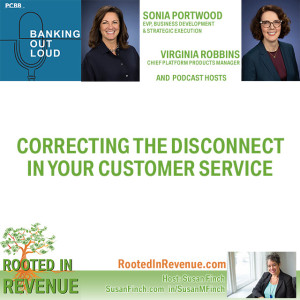
Wednesday Jun 30, 2021
Correcting the Disconnect in Your Customer Service
Wednesday Jun 30, 2021
Wednesday Jun 30, 2021
If someone is completing a form, you never want your customer to take any action that they don't know what's next for them. They need to know what's next and how long it will take. This is just one tip from Sonia Portwood and Virginia Robbins from PCBB. Customer service can make or break your business. Look at everything that you do from the point of view of your customers and you can't go wrong. Virginia reminds us to be brave when a customer leaves. Pick up the phone and ask what happened and how you could improve. It will only make you more successful. We made so many sudden changes last year and now it's time to review, adjust and make sure we are truly listening to our customers and incorporating their problems, hiccups, and complaints to be better at serving them to hopefully avoid repeating the mistakes.
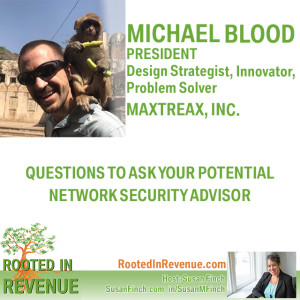
Monday Jun 21, 2021
Vetting Your Network Security Vendor and Locking It Down.
Monday Jun 21, 2021
Monday Jun 21, 2021
What are the questions you should ask before you select a network security advisor? What should you ask yourself? What are your accessibility needs? Be sure to include the factor of your team's cell phones. How secure are they? The simple requirement for facial recognition to login can save headaches and disasters. Listen to this short episode walking through the logic and some actionable tips.

Wednesday Jun 16, 2021
Time for Security Review to Continue #WFH or Hybrid
Wednesday Jun 16, 2021
Wednesday Jun 16, 2021
When we all were sent home suddenly, not everything was ready for this transition, including the security of the workspace we were cobbling together at home, in closets, on kitchen tables, our cars, coffee shops. Many companies have continued to evolve policies, purchase equipment for those working remotely. But many haven't been able to. This episode will help those companies start that thought process and catch up.
Michael says, "Treat your remote and home network the same way you would your corporate environment. Having policies in place that you review regularly helps you stay on top of this."
Michael tells the story of someone who was able to work from home, but what the company didn't realize, she was sharing the computer with her student daughter. This left a lot of vulnerability because the company didn't send her home with a dedicated computer, or cite the requirements to protect company information and that of their clients. This episode helps us pick up where we left off when we started working from home. Many aren't going back. It's working out well. Follow these tips to ensure it continues to work better and improve constantly.
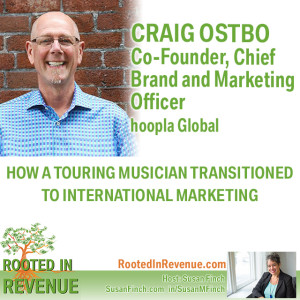
Wednesday May 05, 2021
What you need to know before going after an International or Global Market
Wednesday May 05, 2021
Wednesday May 05, 2021
Today, I am interviewing Craig Ostbo. I met Craig because Nina Hambleton, who was on our team, everybody loves Nina. She said, "You need to interview my professor because he's the real deal. And he knows everything about international marketing and has so much passion and joy for this."
From a touring musician to the perfect timing getting into the natural, the organic, and sustainable world of products, and taking clients brands global is the story he's telling us today. He's also shared some free resources and advice.
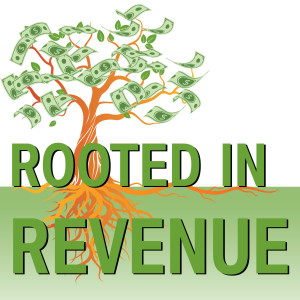
Wednesday Feb 24, 2021
What if the old audience is still enjoyable, but not as profitable?
Wednesday Feb 24, 2021
Wednesday Feb 24, 2021
"I understand that your clients are your gold, and I'm not going to do anything to tarnish that." Doug C. Who is your ideal client? do not be afraid to truthfully state it. Everyone is not our client. Dream it! You are not being ungrateful grabbing all the crumbs. Free up your time, free up your effort. What do you want your income level to be? Is that enough? It may be fine, everyone has their own level of gratification.
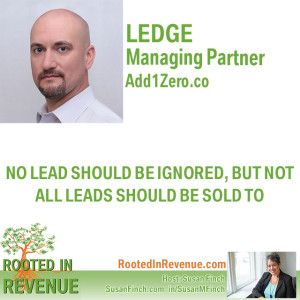
Wednesday Feb 17, 2021
No lead should be ignored, but not all leads should be sold to.
Wednesday Feb 17, 2021
Wednesday Feb 17, 2021
Continuing our discussions with Ledge on ways to quickly jump start your sales team, and ultimately your company's revenue and joy he tackles good vs bad leads and why they all need to be addressed. He says, "From the funnel standpoint, you can use some automation for that, but ultimately make sure you have sales and marketing work together on a human look at the discernment in your funnel. Is this a fit? Why is it not a fit? If it's not a fit are there any flags that I can indicate ahead of time from an automation standpoint?" He continues, "It's unethical to even try to take somebody's money for that when down the street there could be a provider that could help them out." Tune in for tips, insights, and your inspiration.
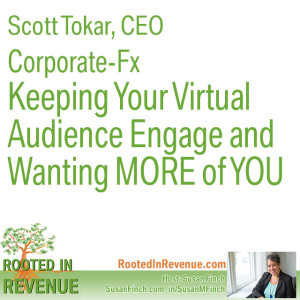
Wednesday Aug 05, 2020
Keeping Your Event Attendees Engaged and Wanting More
Wednesday Aug 05, 2020
Wednesday Aug 05, 2020
Ever the optimist, Award-winning Magician, Scott Tokar, is looking forward to the irreplaceable trade shows he is a part of regularly. His corral of other performers know they can adjust and do online appearances, but nothing replaces the barker at a trade show driving people you never reached before to hear your message through entertainment. This episode of Rooted in Revenue first appeared on SLMA Radio. Susan Finch interviews Scott to talk about adjusting, the value of performers to help carry the "hosting" load at virtual and in-person events, as well as how you can plan for when in-person events return or how to stand out with your hybrid or virtual event.
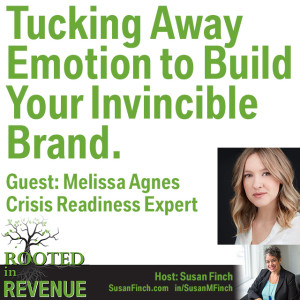
Monday Jan 27, 2020
Tucking Away Emotion to Build Your Invincible Brand
Monday Jan 27, 2020
Monday Jan 27, 2020
Until you address the emotion in a volatile situation with compassion and respect, you will not diffuse a situation and may do more damage raising the intensity to a blistering crescendo. This is the continuing conversation that started a couple of weeks ago with Melissa Agnes. In this episode, we deep dive into one aspect of our response to a crisis, confrontation, and conflict as our brands and key people are bombarded with heavy emotion.
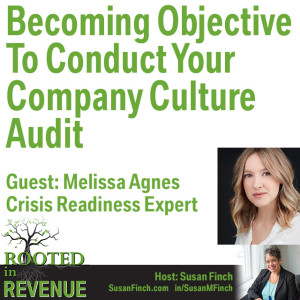
Monday Jan 13, 2020
Crisis Readiness Equals Freedom - 3 Steps
Monday Jan 13, 2020
Monday Jan 13, 2020
When I think of peace of mind in business, it comes from being prepared for the expected, as well as the unexpected. It's not all sparkle ponies, unicorns and laughter. Bad stuff happens.
What we do to respond in those moments as leaders and team members can change the course of a company and set into motion a chain reaction of positive outcomes or a Coyote/Roadrunner death spiral into dust. A bit dramatic I know, but I wanted you to have a visual as I introduce you to an expert in crisis readiness, Melissa Agnes.
You don't have to put this off. You and your company can immediately take steps to build your crisis readiness. You may have more in place than you think you do. Learn from Melissa Agnes who is the author of Crisis Readiness on Amazon.
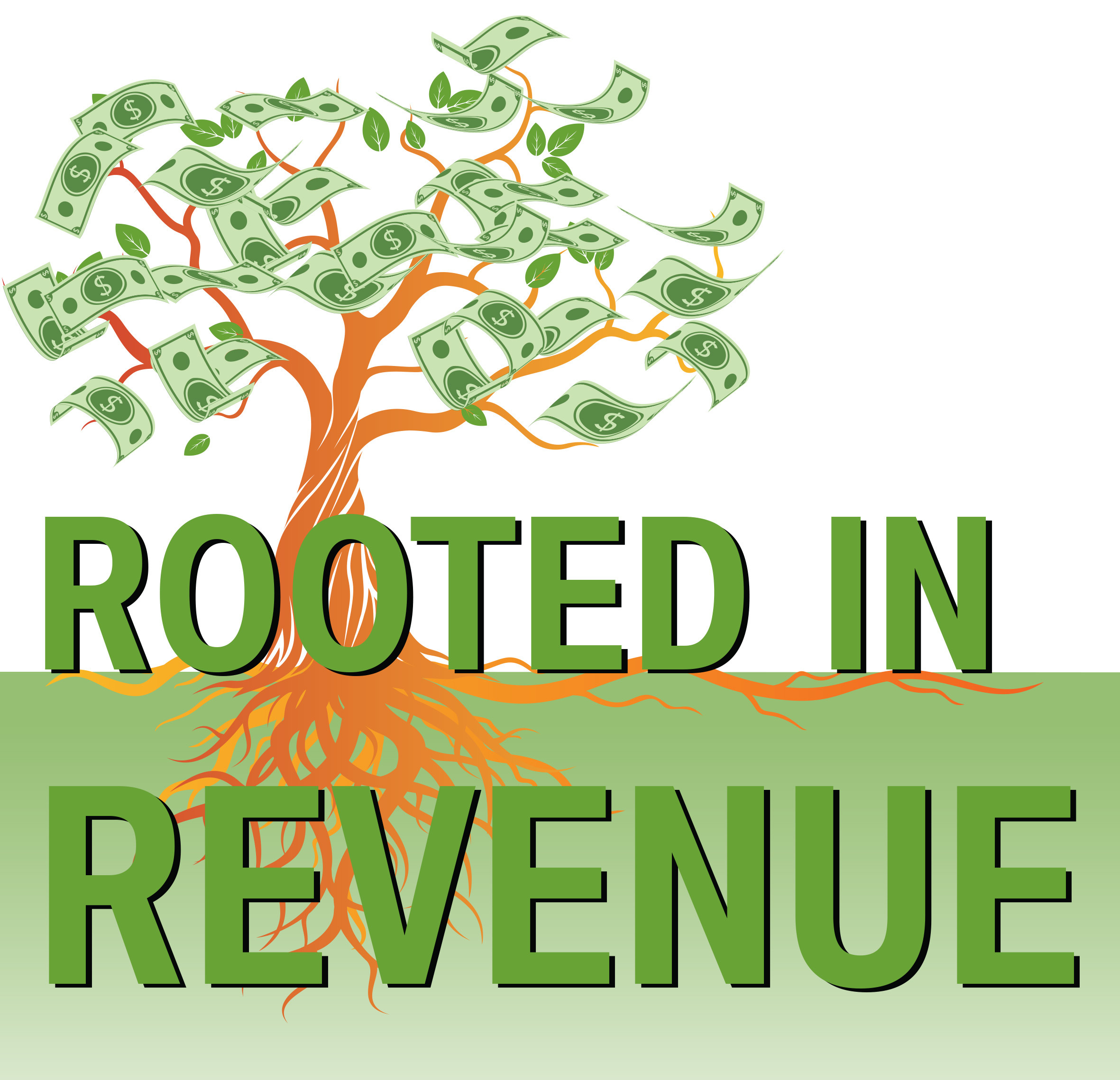
About Your Hosts, Susan Finch & Lany Sullivan
Susan's goal is to bring guests that can bring value, guides, inspiration to those of you struggling to expand the revenue of your company through online marketing, events, training, and honest-to-goodness connections through real conversations.
Susan is the President of Funnel Media Group, as well as Susan Finch Solutions. Her non-profit, Binky Patrol has her heart.
Lany Sullivan, with over 20 years of experience in Corporate America and Business Ownership, helps clients find more adventure, joy, and freedom through efficient business operations. Her wealth of lessons and depth of experience enable her to identify challenges and develop custom-tailored strategies to meet your unique needs and goals.









